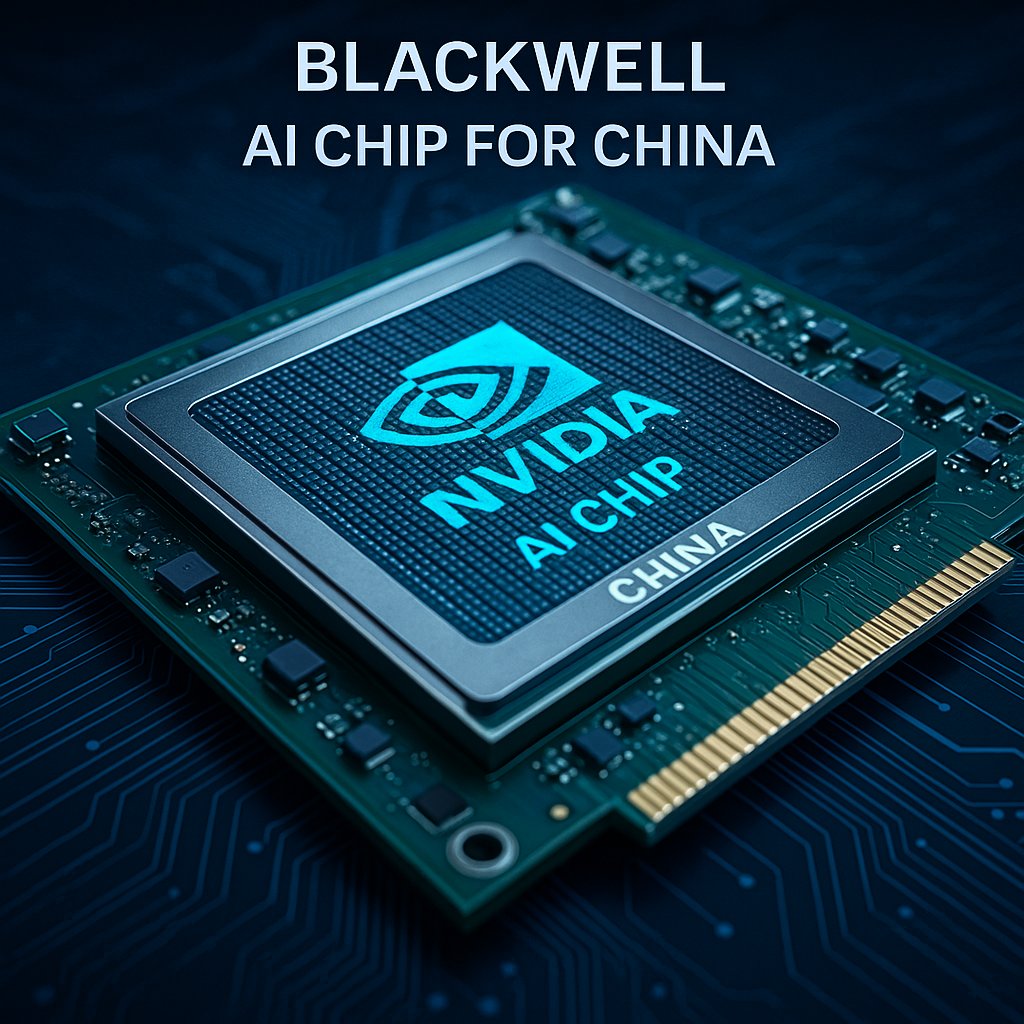Image created by AI
Nvidia Plans New AI Chip for China Amid Export Restrictions, to Cut Prices Drastically
Nvidia, the prominent AI and graphics processor giant, is gearing up to introduce a new, more affordable AI chip under its latest Blackwell architecture tailored especially for the Chinese market. This strategic move comes in response to recent U.S. export controls that have heavily impacted the tech industry, especially sectors involving advanced computational technologies.
The forthcoming GPU, based on Nvidia’s RTX Pro 6000D server-class graphics processor, is strategically priced between $6,500 and $8,000. This is significantly lower than the costs of its previous model, the H20, which ranged from $10,000 to $12,000. The decision for the price drop reflects the simplified manufacturing requirements and the chip's pared-down specifications, using conventional GDDR7 memory rather than the high bandwidth memory incorporated in more advanced models.
This new development is particularly noteworthy as it marks Nvidia’s third adaptation of its GPU offerings for China, the world’s second-largest economy and a critical market for Nvidia, making up 13% of its sales in the last financial year. With the U.S. imposing stringent restrictions aimed at curbing China's technological advancements, Nvidia's local market share has seen a significant drop – from a dominant 95% before 2022 to 50% presently, with Huawei emerging as a formidable competitor with its Ascend 910B chip.
The urgency of Nvidia's situation was highlighted further after the U.S. effectively banned the H20 in April. Subsequent attempts to modify the H20 to suit Chinese regulations were abandoned due to the inflexibility of its older Hopper architecture under new U.S. guidelines. The constraints imposed by the latest export controls specifically limit the GPU's memory bandwidth, crucial for the intensive data processing required in AI workloads.
The timing for mass production of this new AI chip is set for as early as June, with an additional model expected to begin production by September. These moves indicate Nvidia’s aggressive strategy to reclaim its footing in the Chinese market, especially as CEO Jensen Huang recently voiced concerns over increasing customer shift towards local manufacturers like Huawei if U.S. restrictions persist.
Nvidia's approach to navigating these geopolitical tensions involves creating specialized products that comply with international laws while still appealing to a key segment of its global customer base. This tactic not only reflects the complex interplay between global trade policies and tech innovation but also highlights the adaptive strategies tech companies must undertake to thrive in a rapidly evolving market landscape.










